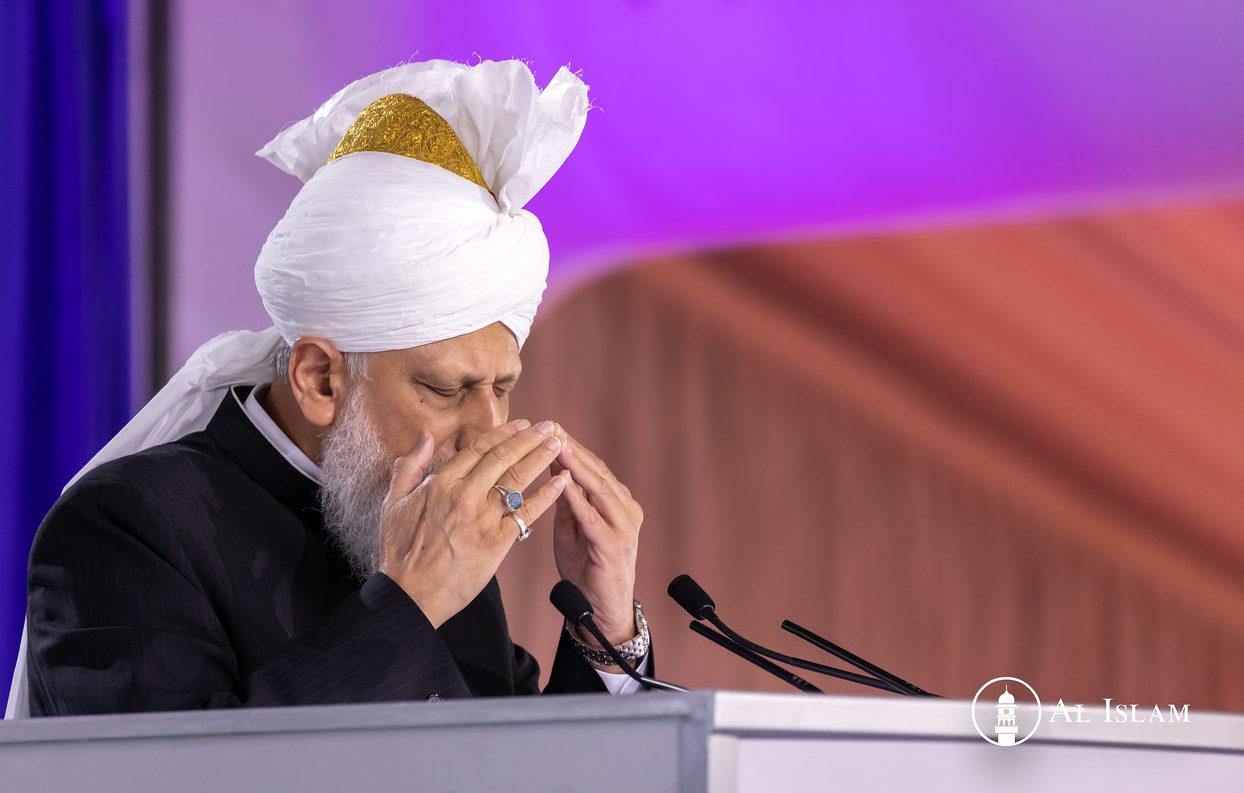Islam’s multifaceted teachings seamlessly intertwine faith and fitness, contemplation and action, providing motivation and a well-defined framework for meaningful change.
BABAR GULZAR, SRINAGAR
SEPTEMBER 26, 2023
As we continue to delve deeper and deeper into the understanding of the human body, it comes as no surprise that the world’s top killers still prevail. Even the dreadful pandemic that recently terrorised the entire globe could not surpass the primary contributors to global mortality – heart diseases and cancer[1]. The burden imposed on healthcare by these diseases is substantial. In terms of cost, it runs into billions of dollars[2], and its impact on morbidity and quality of life is staggering, not to mention the mental toll it takes.
This is indeed a major issue and warrants concerted efforts to be curbed. However, at an individual level, each of us possesses the power to change these figures significantly, provided we resolve to amend our habits and discipline our lifestyles.
Obesity has been identified as one of the most significant risk factors for heart diseases and cancer[3]. A growing body of research has acknowledged the health hazards of obesity, and the unstoppable rise in its prevalence has led healthcare organisations to label it as ‘the obesity pandemic’[4].
A stealthy foe
The increasing occurrences of sudden deaths in all segments of society have caught our attention recently. While reports attribute a majority of such deaths to different types of heart diseases and complications, research has repeatedly confirmed the association of obesity with such deaths, especially sudden cardiac deaths[5]. Similarly, abdominal obesity has been shown to increase the risk of recurrent heart attacks and strokes, with waist circumference being a significant indicator[6]. Likewise, research has established a connection between obesity and several types of cancer, showing that it can increase the risk of cancer-related mortality[7].
Hence, to neglect the role of obesity as a promoter of these global life-threatening conditions would be equivalent to deceiving ourselves. The truth is these ailments are interconnected branches of the same tree; a tree that is nurtured by excessive body fat and leads to a range of outcomes.
It has been reported that the Holy Prophetsa would seek refuge from sudden death[8]. The wisdom conveyed in this teaching underscores the importance of addressing the root causes of the diseases mentioned above and taking necessary measures to combat them.
Prayers are integral to our efforts in achieving any goal. However, the pathways laid down for us by Islam in this regard serve as an excellent armamentarium as we fight this foe.
Three principles to a healthy life
A simple way to significantly reduce the alarming statistics detailed above would be to adopt a healthy lifestyle. Though this is not a fact unknown to anyone, putting this easier-said-than-done theory into practice demands much courage and effort.
For a believer, the most powerful impetus to accomplish any objective is to earn the love of Allah. Nothing can provide a stronger driving force for them than to please their God. This very factor has been defined as the primary motivation for Muslims to preserve their physical health. The Holy Prophetsa says:
“A strong believer is better and is more beloved to Allah than a weak believer.”[9]
If we take an overview of the Islamic routine and restructure our day accordingly, we will indeed tread the path of wellness. As such, three principles will be discussed here in light of Islamic teachings that are substantial in our journey towards holistic well-being.
Diet
In Islam, we find enduring principles that assist us in maintaining the fundamental equilibrium between our dietary intake and how it affects our bodies. While not delving deeply into the medical intricacies of disease pathogenesis, the Quran provides an astonishing perspective with regard to nutrition. It advises:
“And eat and drink but exceed not the bounds; surely, He does not love those who exceed the bounds.”[10]
This simple yet profound verse prompts us to consider our dietary habits and maintain a balanced diet. It offers a unique perspective that supercharges our commitment to mindful eating. As discussed above, fat accumulation in human body plays diverse pathogenetic roles in various health conditions, sometimes serving as raw material, providing a suitable ground, or occasionally acting as a matchstick that ignites the chronic fire of lingering illnesses.
The Holy Prophetsa says:
“A human being fills no worse vessel than his stomach. It is sufficient for a human being to eat a few mouthfuls to keep his spine straight. But if he must (fill it), then one third of food, one third for drink and one third for air.”[11]
In a contemporary scientific context, this injunction aligns with what we now refer to as calorie restriction, as evidenced by numerous studies[12]. It provides a powerful blueprint for dietary discipline and exemplifies the essence of fasting and moderation. Embracing these principles not only strengthens our spiritual journey but also urges us to walk the path of delayed gratification – a concept found in both age-old religious wisdom and modern scientific insights.
Exercise
The extensive scientific evidence backing the importance of daily exercise regimens is substantial. As emphasised by the Centers for Disease Control (CDC), some activity is better than none. It recommends adults to aim for 150 minutes of moderate-intensity physical activity per week (equivalent to a brisk walk where conversation is slightly difficult) spread across five days, along with two days dedicated to muscle-strengthening activities[13].
Remarkably, Islamic practices themselves are interwoven with physical benefits. In addition to the primary purpose of fostering spiritual upliftment, the daily prayers, owing to their rhythmic movements, also promote joint flexibility and circulation. Similarly, the Hajj and Umrah journeys, characterised by prolonged walking, contribute to man’s physical fitness while underscoring a profound sense of unity among believers. Hiking, often revered as a leisurely pursuit, takes on a new dimension as the Holy Prophet’s footsteps graced mountains alongside his companions.
“The Holy Prophetsa once climbed the mountain of Uhud with Abu Bakrra, Umarra and Uthmanra.”[14]
Similarly, Hazrat Umarra is reported to have said:
“Teach your children swimming, and teach your fighters archery.”[15]
The wisdom embedded in the teachings of the Prophetsa affirms the significance of self-sufficiency and physical resilience. His involvement in horse races, camel competitions, and archery resonates as a testament to his holistic perspective. By championing the art of riding, sprinting, and even engaging in friendly races with his wife, Aishara, he underscored the pivotal role of physical strength and agility in our lives.
Involvement in physical activity offers a wide range of benefits, from enhancing spiritual well-being and addressing physical and mental health issues to triggering the release of positive neurotransmitters in the brain. These same chemicals, which often lead addicts towards self-destructive behaviour, can be harnessed in the opposite direction to guide individuals towards a wholesome and healthy lifestyle.
Sleep
The significance of sleep and its effects on daily routines, eating habits, cognitive abilities, and work performance has become a prominent subject of scientific investigation in recent decades. However, for centuries, we have been fortunate to possess the guidance of Islam in this regard. The Holy Quran states:
“And He it is Who has made the night a covering for you, and Who has made sleep for rest, and has made the day for rising up.”[16]
The Quranic teachings regarding the duration of sleep are impeccably comprehensive, accounting for seasonal fluctuations, and are eloquently conveyed in simple yet flawless terms: The Holy Quran states:
“Half of it, or make it a little less than that.”[17]
The second Caliph of the Ahmadiyya Muslim Community, Hazrat Mirza Bashiruddin Mahmud Ahmadra, explains in Tafseer-e-Sagheer, “Some nights are very short, in which only a small portion of the night is spent awake with the intent of safeguarding health. However, it is advised that when the nights are equivalent to days in length, then spend half the night awake and half asleep. And when the nights are longer, dedicate a larger portion to staying awake and a smaller portion to sleep. And when you wake up, engage in the recitation of the Quran”.[18]
Faith and fitness
Islam’s teachings offer a roadmap for balanced living. The interplay between faith and fitness, prayer and exercise, contemplation and action has been woven into its very fabric. In a world marked by uncertainty and a relentless pursuit of progress, the multifaceted teachings of Islam provide not only solace but also a framework for meaningful change.
Filled with insights garnered from the union of science and spirituality, the legacy of Prophet Muhammadsa resonates not only as a guide for the faithful but also as a beacon of timeless wisdom that has the power to illuminate our path to a healthier, happier, and more harmonious existence.
Babar Gulzar is a medical intern who completed his MBBS from Government Medical College Srinagar. He currently serves as the regional head of Khuddamul Ahmadiyya (young Ahmadi men’s auxiliary) in Srinagar.
END NOTES
[1] The Top 10 Causes of Death, World Health Organisation, 9 December 2020
[2] Spending on Cardiovascular Disease and cardiovascular Risk Factors in the United States: 1996 to 2016, Maxwell Birger et al. Circulation v. 144, i. 4 (27 July 2021)
[3] Shared Risk Factors in Cardiovascular Disease and Cancer, Ryan J Koene et al. Circulation v. 133 n. 11 (15 March 2016)
[4] The global obesity pandemic: shaped by global drivers and local environments, Boyd A Swinburn et al. The Lancet, v. 378 no. 9793 (17 August 2011)
[12] Is Caloric Restriction Associated with Better Healthy Aging Outcomes? A Systematic Review and Meta-Analysis of Randomized Controlled Trials, Silvia Caristia et al. Nutrients, v. 12, no. 18 (30 July 2020)
[13] How Much Physical Activity Do Adults Need? Centers for Disease Control and Prevention
[14] Sahih al-Bukhari, Kitab Fadail Ashab an-Nabi (Book on Companions of the Prophet)
[15] Musnad Ahmad ibn Hanbal, Musnad Umar ibn al-Khattab
[16] Holy Quran 25:48
[17] Holy Quran 73:4
[18] Tafseer-e-Sagheer, footnote under the verse 73:4












1 Comment
C.A.R a h i m · September 28, 2023 at 12:02 am
Save my name